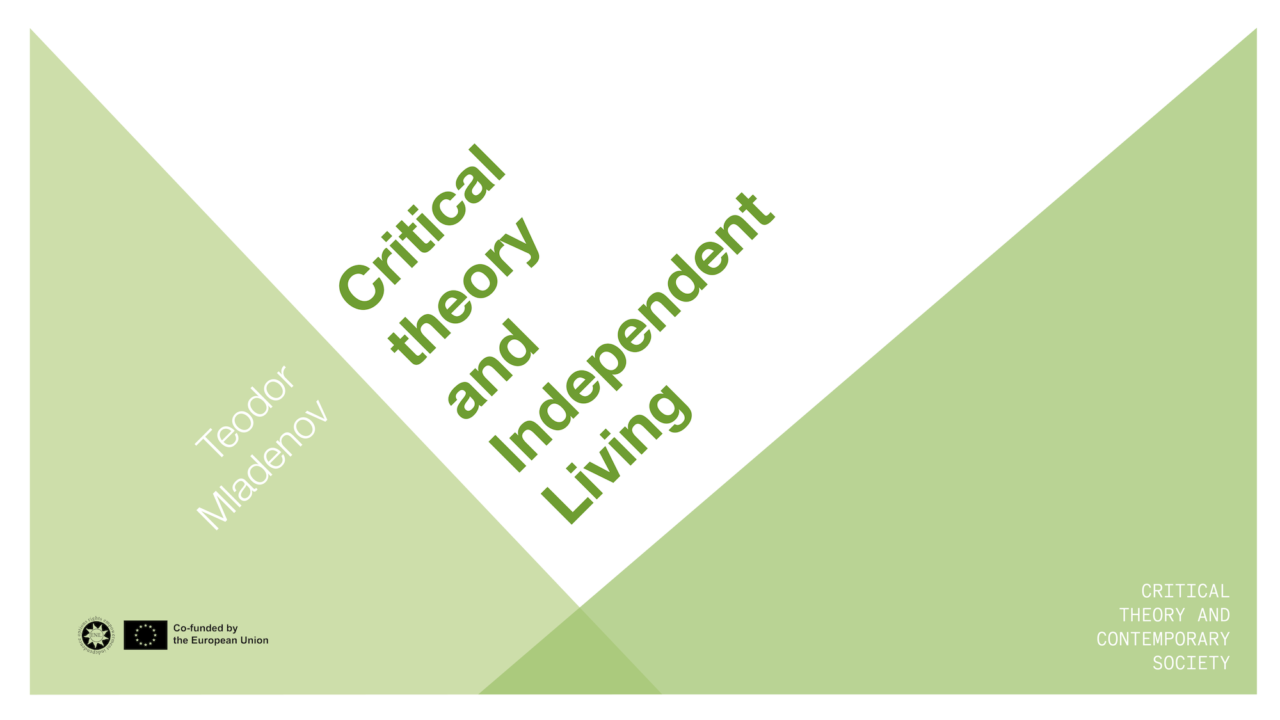Teodor Mladenov
Senior Lecturer, University of Dundee
Coordinator, Independent Living Research Network
In recent years, I have witnessed and contributed to a distinct and exciting field of research that might be called ‘Independent Living Studies’.
It builds on the Independent Living Movement’s five decades of fighting for disabled people’s self-determination, dignity, and inclusion. Its analyses are critical, and its recommendations seem radical from the perspective of professionalised care.
Independent Living Studies is informed by the lived experiences of disabled people fighting for choice and control over their everyday lives.
I witnessed the force of Independent Living Studies at this year’s conference of the Nordic Network on Disability Research (NNDR), held at the University of Helsinki in Finland on 7-9 May 2025. It was the biggest disability studies conference I have ever attended, with over 700 participants – a memorable, carefully curated, and skilfully hosted event.
The conference organisers embraced the idea of including an Independent Living stream among the other thematic streams at the conference. I had the honour and privilege of organising the stream with Professor Rannveig Traustadottir, Director of the University of Iceland’s Centre for Disability Studies, and Kamil Goungor, Policy and Movement Support Officer at the European Network on Independent Living (ENIL).
Kamil rightly argues that academia can be boring. As an academic, I not only agree with this verdict, but I would go even further. Contemporary universities can be depoliticising, bureaucratic, and stifling dissent. Academic life can easily reduce scholars’ curiosity and passion for social change to self-serving careerism.
And yet, the Independent Living stream at the NNDR 2025 conference was interesting, inspiring, dissenting, and socially committed. It effectively provided a space where activism met scholarly engagement and policy innovation, mobilising Independent Living as a field of enquiry capable of driving forward disability research and emancipation in the 21st century.
The stream featured a variety of presentations that ran throughout the three days of the conference, covering several broad areas of Independent Living research:
- activism and Independent Living theory;
- personal assistance;
- support in the community;
- deinstitutionalisation and the UN Convention on the Rights of Persons with Disabilities.
We learned from Independent Living activists, disabled people, academics, and professionals.
We started by honouring the life and work of one of the most important people in Independent Living thinking and activism in Europe and beyond – Adolf Ratzka, who passed away in 2024, leaving a huge void in the movement. We heard from people who knew Adolf personally – Jamie Bolling, Director of the Independent Living Institute, Emil Erdtmann, a researcher at Stockholm University, and Rannveig.
From there, the stream logically proceeded with critiques of present-day barriers to Independent Living, including entrenched professional power, misuse of Independent Living terminology and ideas, cuts to personal assistance services, neoliberal austerity and its impact on disability support, and failures to implement the UN Convention on the Rights of Persons with Disabilities.
We found inspiration in the history of the Independent Living movement, past and present peer support initiatives, activist organising, and protest. Our understanding of Independent Living was deepened by analyses of support, activism, and agency that drew on key concepts in contemporary social theory such as biopolitics, intersectionality, epistemic injustice, crip spacetime, and interdependence.
Although most presentations focused on Western Europe (including Austria, England, Germany, Iceland, Ireland, the Netherlands, Norway, Scotland, Sweden, and Wales), we also heard about Independent Living struggles in East-Central Europe (Czech Republic and Poland), Southern Africa (Zimbabwe), North America (Canada), and Oceania (Australia).
The experience at the NNDR 2025 conference strengthened my conviction that Independent Living is not only a social movement but also a field of enquiry with a rich, distinctive, and dynamic research agenda. It brings together many contemporary debates within disability advocacy and disability studies, while keeping disabled people’s voices and self-determination squarely at the centre.
Although the consolidation of Independent Living Studies is a distant prospect, we already have a solid foundation on which to build.



